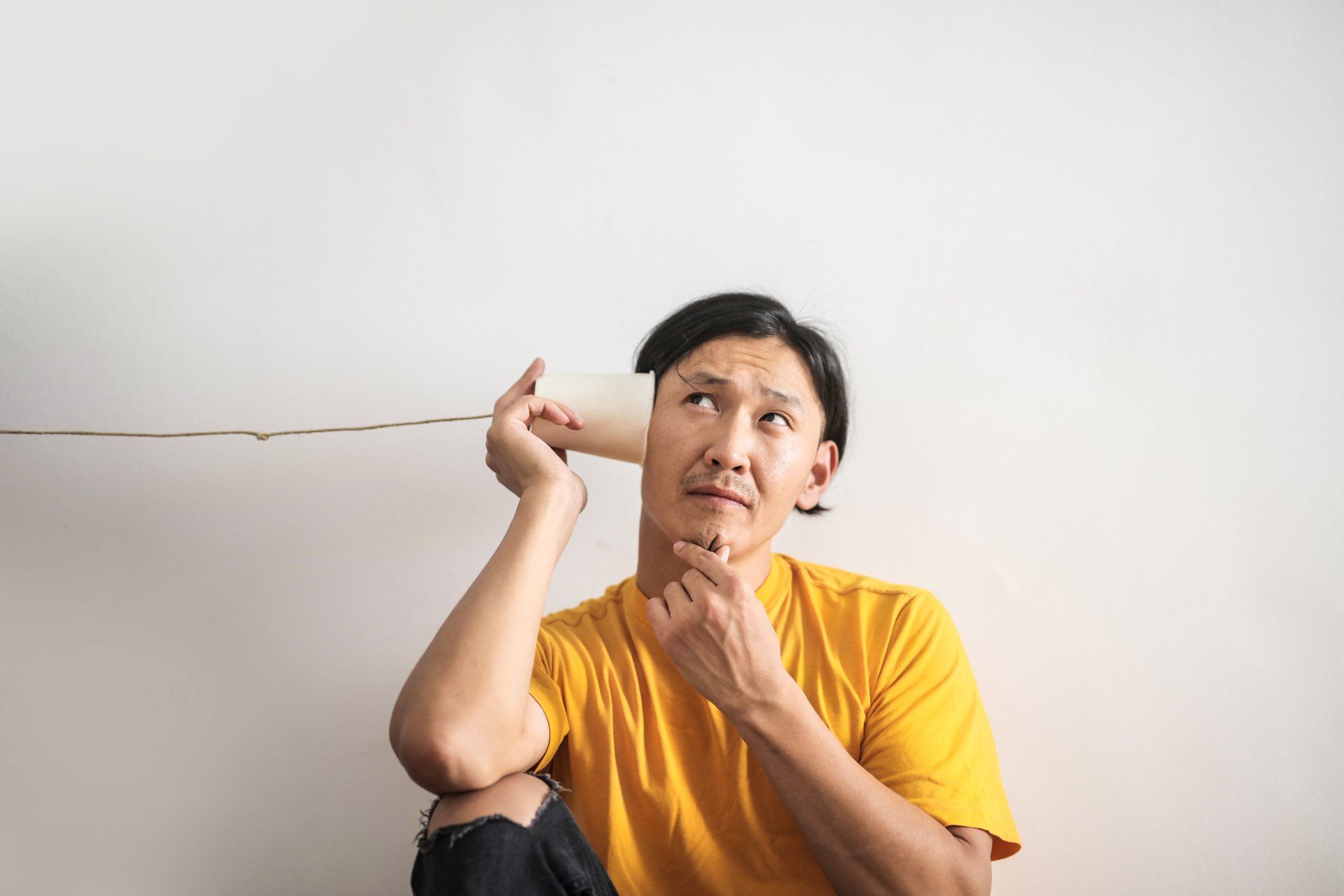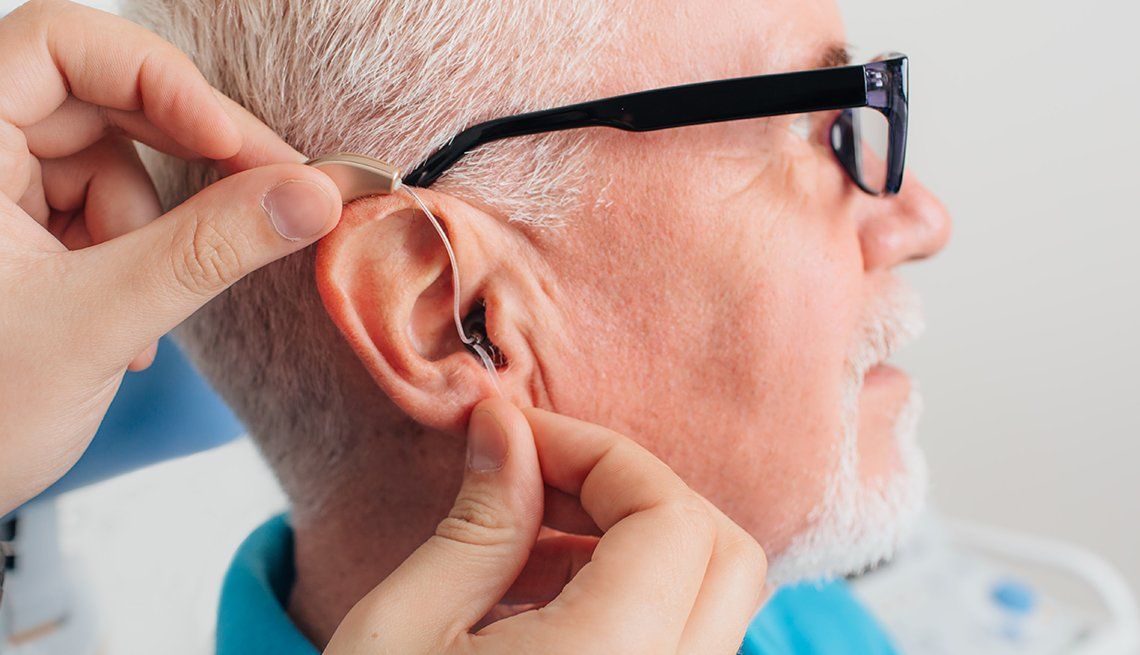Blog Layout
Hearing loss and long term effects
he effects of hearing loss are many and more are emerging as research continues. Most recently, data has emerged linking the onset of dementia with untreated hearing loss. It is important to understand how that relationship exists. Hearing loss that presents increased communication difficulty can make certain interactions less enjoyable, to the point that people withdraw from those interactions. Social withdrawal can be linked to the onset of dementia. For instance if a particular person was once active in service clubs, volunteerism, etc. but hearing has made those things difficult, the person may choose to “retire” from those activities, even though they bring great enjoyment and fulfillment. Removal of that stimulation and interaction can be detrimental to memory and dementia onset.
It is important to not oversimplify hearing loss to a yes or no question. There is a long way between normal hearing and deaf. Most people with hearing loss can benefit from a little extra help to maintain the lifestyle they want to lead. Hearing loss impact should be considered in the context of relationships with spouses and children, career or volunteer activities, social activities and even increased “cognitive load.” Cognitive load is a term we use to describe the increase in brain requirement to fill in the missing pieces that the ears are not sending when there is a hearing loss. For many, listening to speech is like putting together a puzzle, where the brain has to interpret what the missing pieces are. For instance, was that word “tight” or “kite”? Increased cognitive load can result in being tired prematurely at the end of the day or even depression and anxiety for some people.

27 Apr, 2023
“Everyone mumbles.” or “if everyone spoke more clearly, I wouldn’t have a problem.” Have you thought or said either of those sentences before? If you have worked around industrial noise or find yourself over the age of 55, there is a good chance you have. But why? Surely it couldn’t be a reduction in hearing. Or could it? One of the most common misconceptions about hearing is that if it changes, you’ll know it. The truth is, in most cases, you probably won’t unless you get it checked. A reduction in hearing can be sneaky. It usually progresses slowly and usually involves higher pitches first. Both of these factors mean other people will probably notice you’re having difficulty before you do. Many people think that a reduction in hearing is like turning the volume down on the TV. It isn’t. When we lose our hearing from noise or age, for example, the part of our ear responsible for hearing higher pitches is what is damaged first. This leaves us with more of a problem related to clarity, than loudness. In other words, you may find yourself saying, “I heard you, I just didn’t understand you.” In speech, vowel sounds (oo, ee, ah) are low pitched and are what gives us the power or volume. Consonant sounds (p, t, k, s, sh) are high pitched. They are the ones affected first in most hearing losses. Unfortunately, they are also the sounds we need to understand one word from the next. That phenomenon is also why you may be able to hear the traffic on the highway outside, but yet can’t hear the TV or your spouse every time. So what are you supposed to do if you or someone in your life suspects you have a reduction in hearing? Well the good news is a hearing test is quick and painless. Depending who you see it may even be free of charge. What you will want to make sure of is that the test is comprehensive and thorough. There should be at least 5 or 6 procedures performed in that visit to even begin to come up with some answers. The “beep test” alone is not good enough. If the test results show some degree of hearing reduction, it is important to be educated completely about what your options are. If the results show that your hearing can be improved medically or surgically (about 15-20% of hearing losses), then you will be referred to your family doctor or an ENT (ear, nose, throat surgeon). If your hearing loss is permanent (age, noise, etc.) then you may be a candidate for hearing aids. A competent clinician should prescribe and dispense hearing aids with honesty and integrity. You should not feel as though you are being sold something, but rather that you are being cared for as you would be with your dentist, optometrist, etc. If you choose to adopt hearing aids into your life, you should know that you will undergo a trial period for the first 30-60 days. During that time, if you feel that your needs aren’t being met, you should have the option to return them, hopefully without charge. The hearing aid process should be a positive one in which you are able to work with your clinician to improve your conversations, relationships and overall quality of life.

27 Apr, 2023
I am occasionally asked by family who live in other provinces if I can “sell” them a hearing aid to save them money. I understand that hearing aids are an expensive proposition, but I have refused every time and referred them to excellent colleagues. My explanation is always the same. I tell them, “Who you see will make a bigger difference than what you get.” My family will need follow up and aftercare that I can’t deliver when they don’t live in Alberta. As a result, even though my own mother wears hearing aids, I am not her Audiologist. We should never lose sight of the fact that hearing aids fall squarely under health care but it can be a confusing experience, with a lot to lose. It may be worthwhile to consider a few tips in finding the right professional.
Red Deer Location
Creekside Professional Centre
104-4320 50 Ave
Red Deer, Alberta
T4N 3Z6
Menu
© 2024
All Rights Reserved | HearWell | Privacy Policy | Hearing Directory

